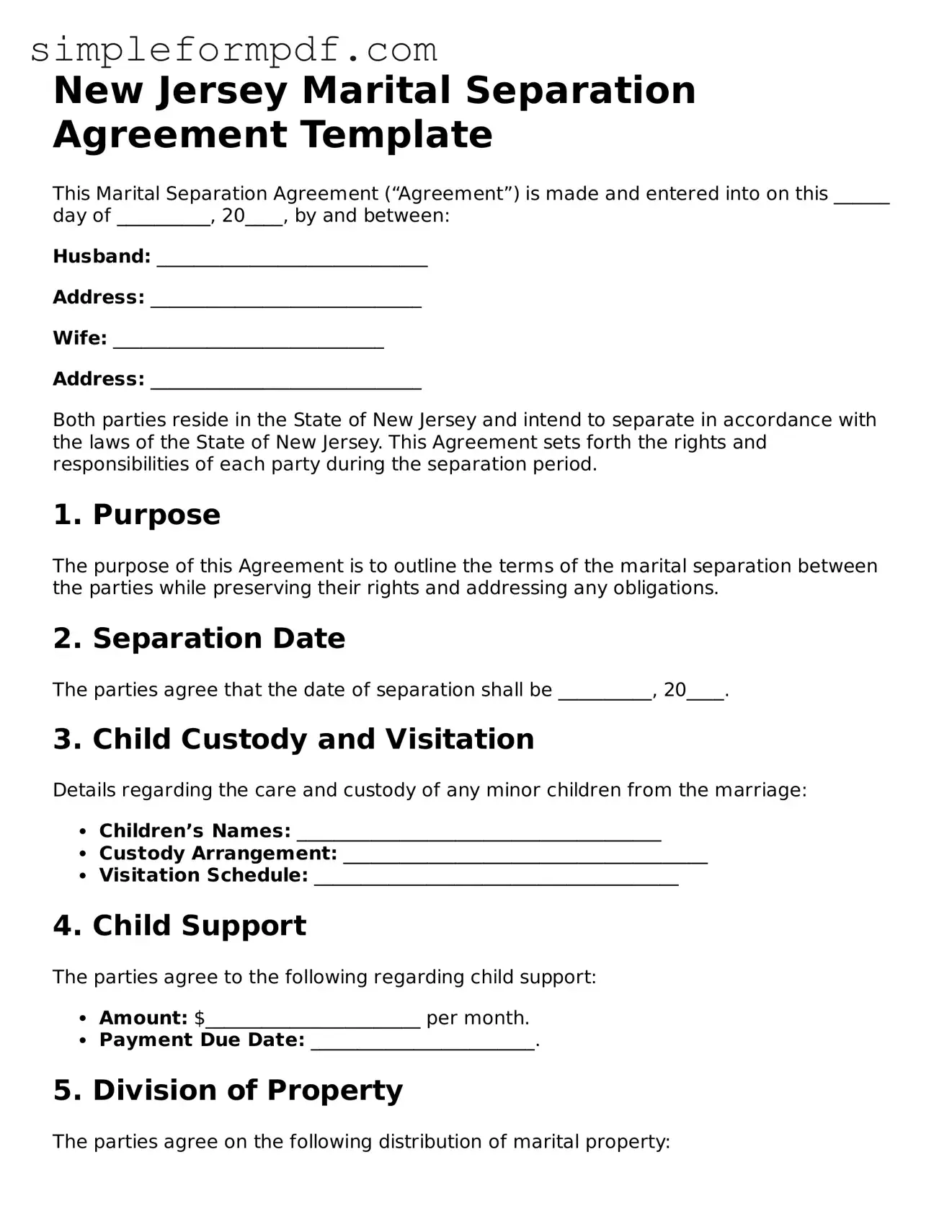New Jersey Marital Separation Agreement Template
This Marital Separation Agreement (“Agreement”) is made and entered into on this ______ day of __________, 20____, by and between:
Husband: _____________________________
Address: _____________________________
Wife: _____________________________
Address: _____________________________
Both parties reside in the State of New Jersey and intend to separate in accordance with the laws of the State of New Jersey. This Agreement sets forth the rights and responsibilities of each party during the separation period.
1. Purpose
The purpose of this Agreement is to outline the terms of the marital separation between the parties while preserving their rights and addressing any obligations.
2. Separation Date
The parties agree that the date of separation shall be __________, 20____.
3. Child Custody and Visitation
Details regarding the care and custody of any minor children from the marriage:
- Children’s Names: _______________________________________
- Custody Arrangement: _______________________________________
- Visitation Schedule: _______________________________________
4. Child Support
The parties agree to the following regarding child support:
- Amount: $_______________________ per month.
- Payment Due Date: ________________________.
5. Division of Property
The parties agree on the following distribution of marital property:
- Husband's Property: _______________________________________
- Wife's Property: _______________________________________
6. Debt Allocation
The parties agree to the following regarding debts incurred during the marriage:
- Husband’s Debts: ________________________.
- Wife’s Debts: ________________________.
7. Spousal Support
If applicable, the parties agree to the following provisions regarding spousal support:
- Amount: $_______________________ per month.
- Duration: ________________________.
8. Modification
This Agreement may be modified only by a written agreement signed by both parties.
9. Governing Law
This Agreement shall be governed by and construed in accordance with the laws of the State of New Jersey.
10. Signatures
By signing below, both parties acknowledge that they have read, understood, and agreed to the terms of this Agreement.
Husband's Signature: ___________________________ Date: ___________
Wife's Signature: ___________________________ Date: ___________
This document serves as a template and may require customization to meet specific needs. It's advisable to consult with a qualified legal professional when creating a marital separation agreement.

